Welcome to the Sales Playbook Word of The Day. We have a collection of meaningful words with explanation and examples that will help and empower sales professionals in the beginning and during their sales careers. These impactful words and their understanding are useful across all stages of a sales pipeline, will help to build trust, credibility and ultimately lead to closing more sales!
Join us on Instagram, Twitter, Facebook and LinkedIn so you never miss out on the most up to date content!
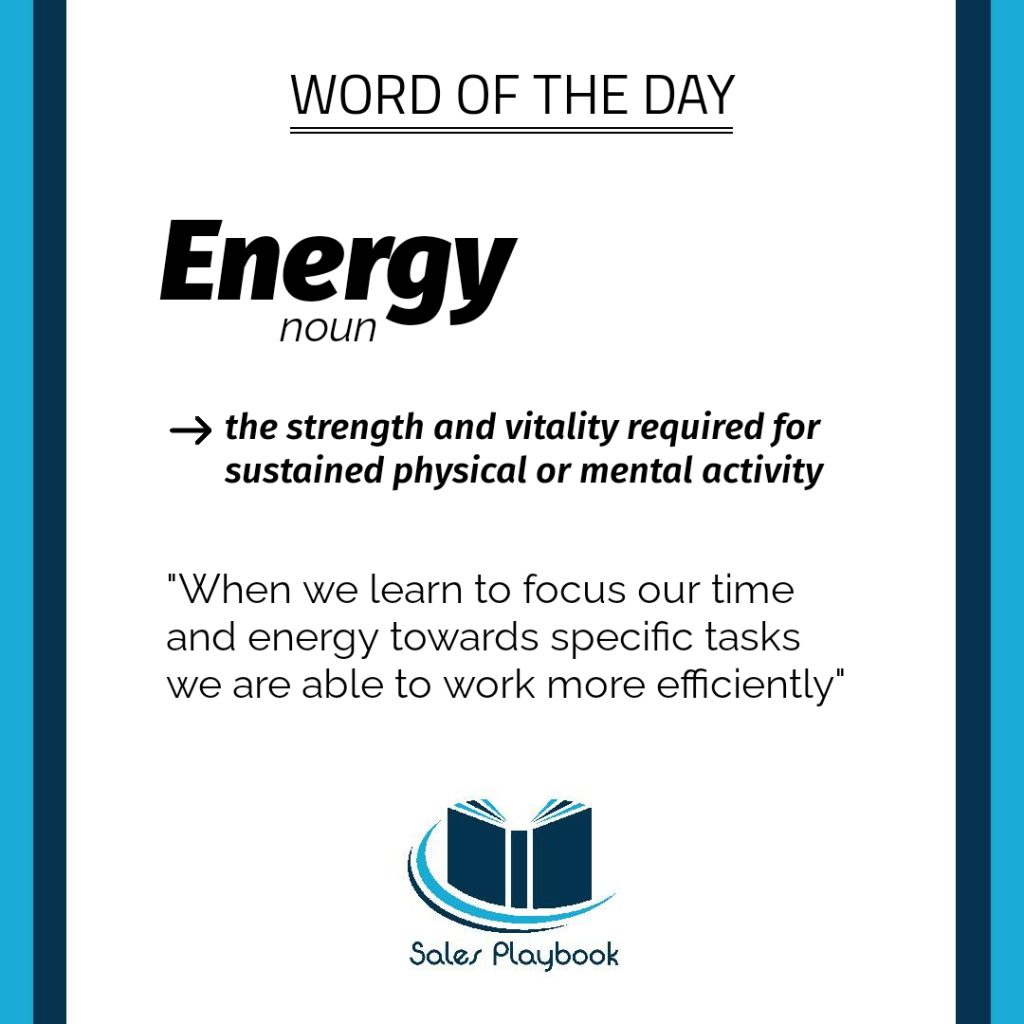
Energy is incredibly important in sales! If you don’t have energy you feel sluggish and tired. Energy can be the difference between hitting or missing target. The best salespeople are pro-active not reactive. They have high energy and make things happen instead of waiting for things to happen!
When you have physical and mental energy you keep going when others may give up, it’s how you move, how you approach prospects or customers, it’s how you present yourself in demonstrations or presentations, and it projects that you believe in yourself and your offering. Here are four ways to keep up your energy:
Eat regularly throughout the day – Exercise throughout the day – Get a good night sleep – Drink more water
We sometimes underestimate the power of our energy levels in sales. Customers appreciate energy, enthusiasm and positivity during their interactions and when you’re trying to hit your number at the end of the month maintaining a high energy level until the final minute of the final day will be the difference between missing, hitting or exceeding quota! – Ben James
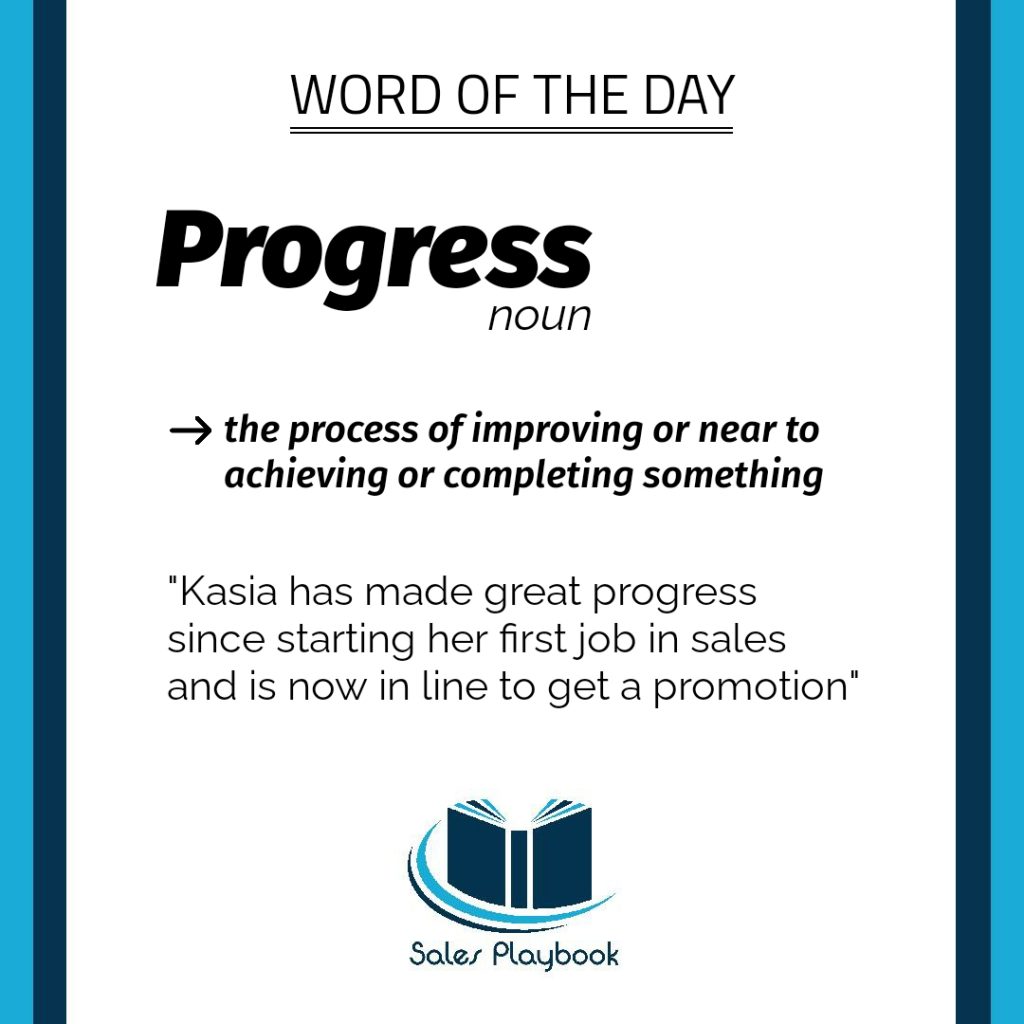
An everyday part of our lives is the desire to progress and this is simply the onward or forward movement towards a goal or destination. Everybody will seek progress in many different ways from improving one’s job to wanting to improve relationships or getting healthier. But this doesn’t happen overnight and often we can get frustrated when we don’t see significant progress quickly. Here are some strategies to help you progress:
Shift Your Mindset – While trying to achieve progress there are likely many things that may need to change and letting go of life as you know it and embracing what may come from change is one of the hardest steps. Make a commitment to yourself and your desired change and then be proactive about it!
Be Consistent – Once you have committed to how you will progress you need to be consistent in the changes you have set out to make. It can sometimes be discouraging when you don’t see results straight away, so set small short term goals as you build towards your long term goals in order to see consistency in your progress!
Adapt When Necessary – Not everything happens as we plan. You can have clearly laid out goals, a routine and be fully committed, but things will change as time goes on. It can be easy to abandon a goal when this happens, but instead have the courage to adapt when issues arise, change your course as and when needed and continue to progress towards your goals! – Ben James
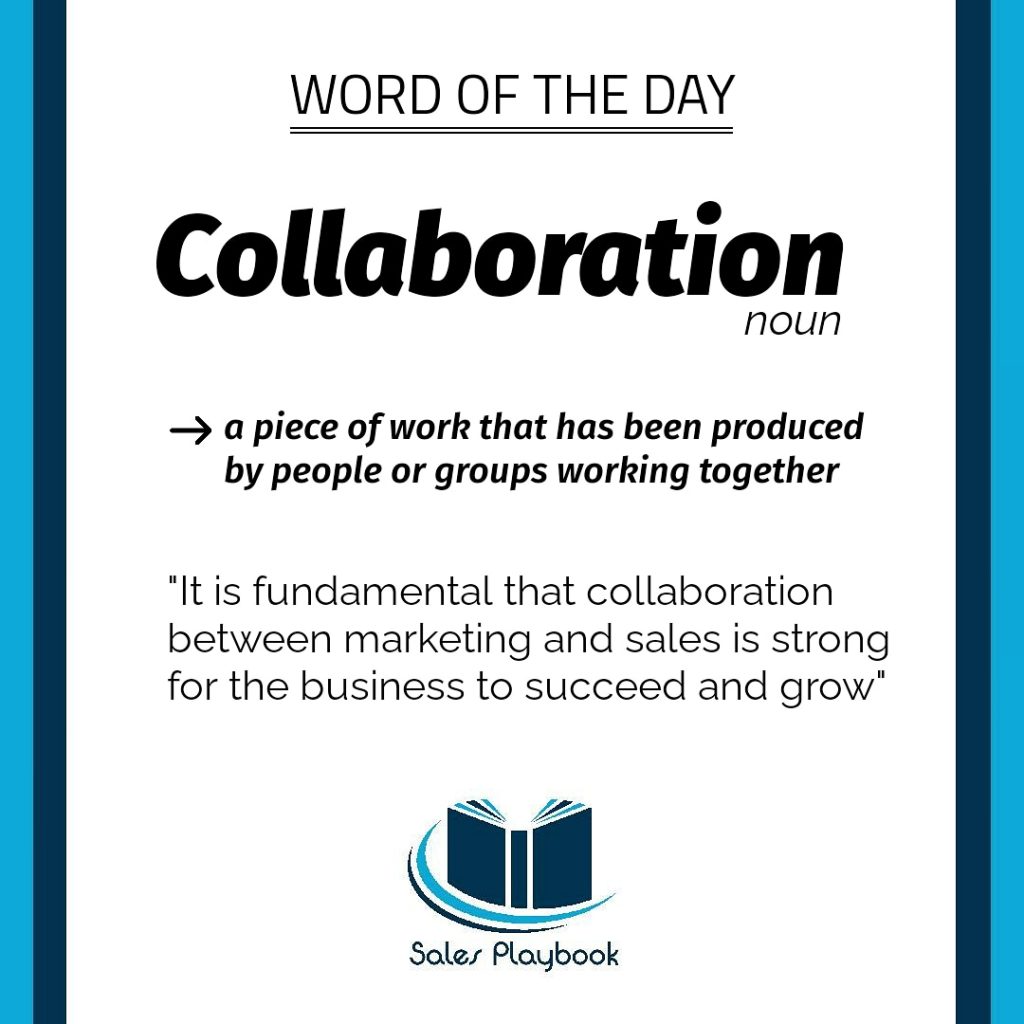
Collaboration is a key element in the success of any organization, but also just as important in individual team achievements. This is not a new concept, in fact team members generally collaborate each and every day, and if they´re not then they should be as this could be the missing part of the puzzle which could elevate a teams success!
Each member of a team will have their own individual skills and expertise and will likely come across information that others don´t. By collaborating their efforts it enables each team member to access each others knowledge, which ensures a stronger workforce and ultimately a better working environment. Collaborative selling yields more trust between sales teams, but also longer lasting relationships with customers, so make sure the collaboration between your sales and marketing teams is strong, encourage alignment to create an all-star team when reaching out to prospects and providing support to existing customers.
Lastly invite your prospects and/or customers to fully participate in your sales process. Make them an active part of designing the solution for their business, because involving them will create a better customer experience and ultimately drive your sale forward! – Ben James
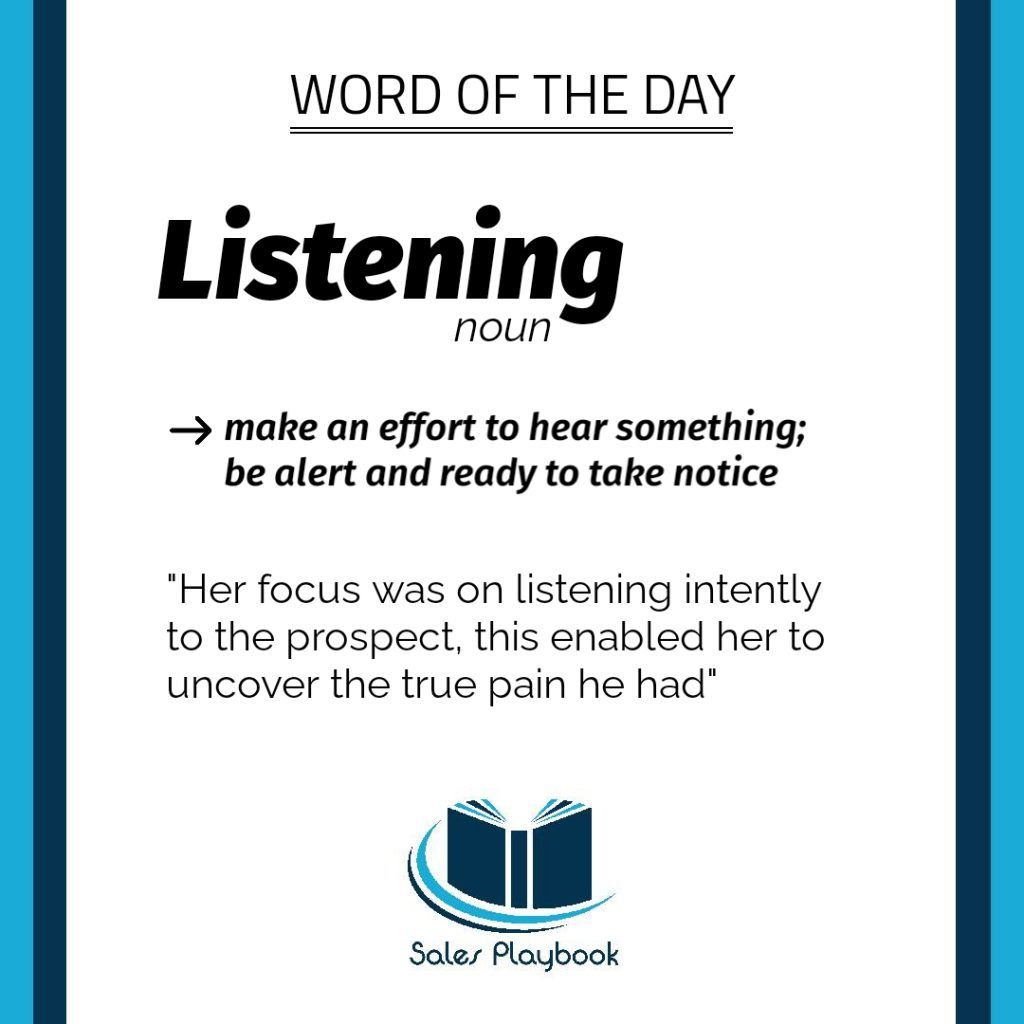
The first skill a salesperson should look to master is the one of listening to their prospects or clients. This will instantly help them, from their very first call all the way through to closing and retention. The better a sales rep´s listening skills the better their sales conversation will be, and as a result they will close more deals. Many sales leaders know that this skill is difficult to coach. It needs to be something that a sales rep actively embraces and masters on their own.
Take objection handling as an example, you can write responses to common objections for sales reps to memorize and repeat, but that won´t uncover the true objection or explore where the objection originated. It’s only by conversing with a prospect and then LISTENING to what that individual’s response is that you can truly gather the information you need to move the needle in your sale. Remember everyone is different, every company is different!
Listening is also the best way to build rapport and trust, if your prospect truly believes you’re interested in them and curious about their specific pains, needs, wants and desires they will see you as a trusted advisor and be more interested in implementing your offering. – Ben James
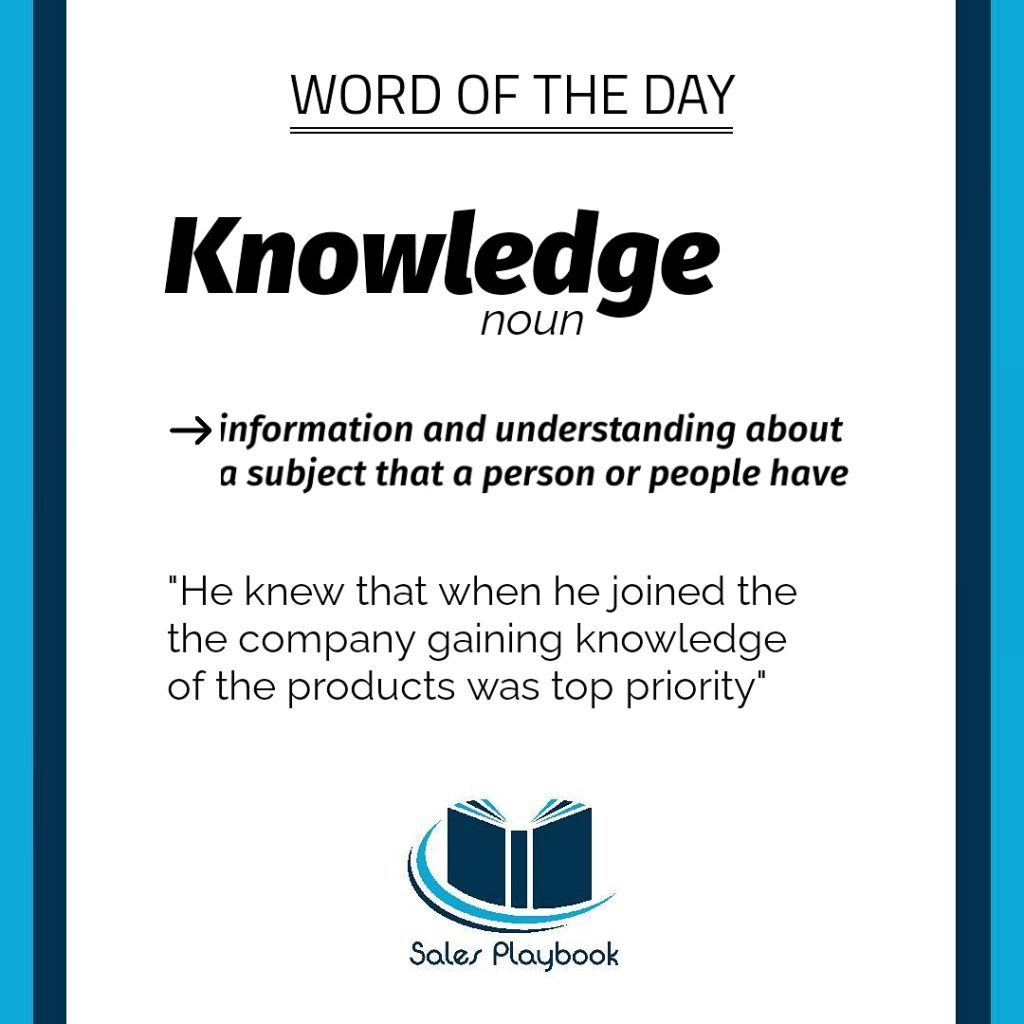
Industry and product knowledge are key components for any successful salesperson. Mastering this sales skills will enable you to present your offering accurately, but more important enthusiastically. Customers respond well to salespeople who are passionate about their product or service, after all if you´re not passionate about your offering why should they be?
Confidence is also built around industry and product knowledge. Customers are more likely to trust a salesperson who is confident about their product or service. Here are a few examples of how you can increase your knowledge:
Gain experience by using the product or service yourself. Customer stories, testimonials or white papers. Online forums. Internal sources including CRM. Your team members and leadership. Internal and external training programs. Competitor information.
These are a few, but use everything at your disposal to increase your knowledge and you will increase your success! – Ben James
